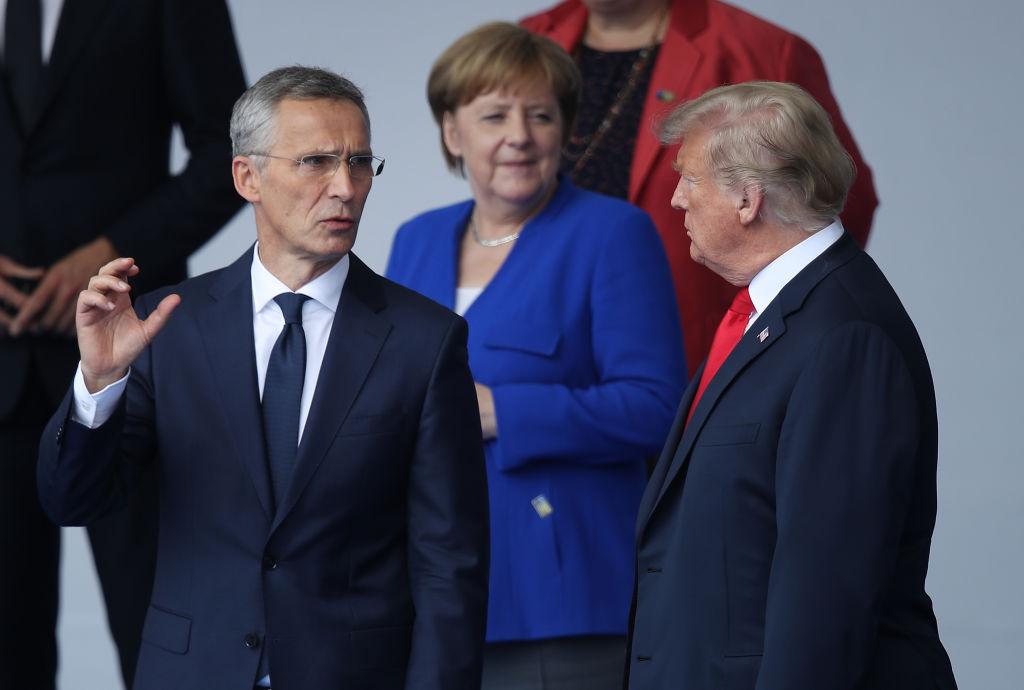President Donald Trump harshly criticized Germany on July 11 for buying vast amounts of energy from Russia while relying on the United States to deter the threat of Moscow’s threatening geopolitical ambitions.
Trump aired his criticism in a tense exchange with NATO Secretary General Jens Stoltenberg as cameras rolled during a pre-breakfast media opportunity usually reserved for pale and formulaic political remarks.





